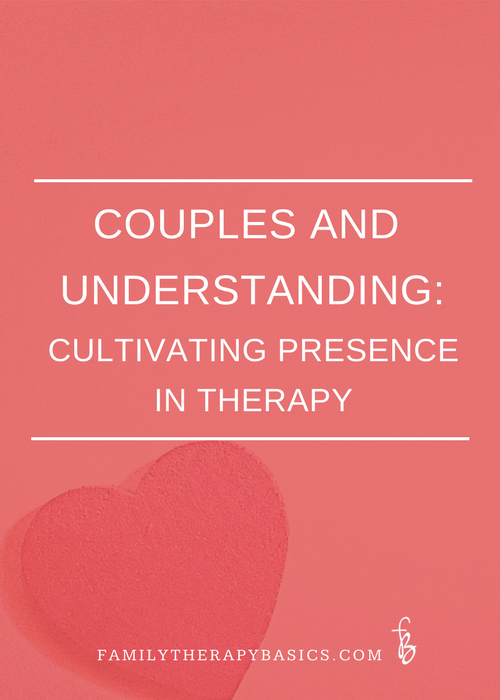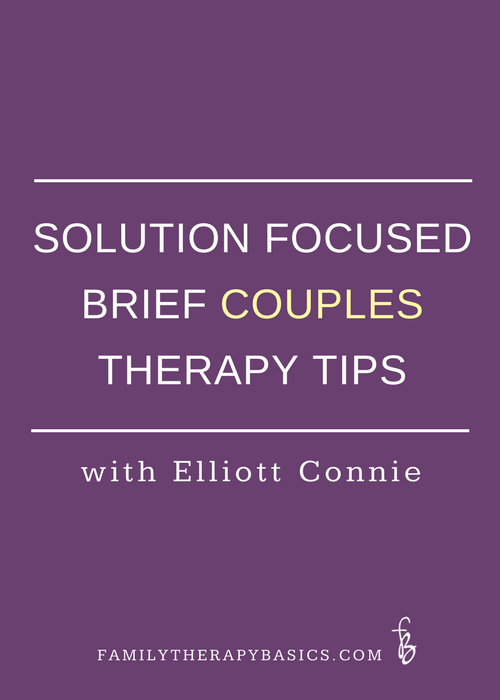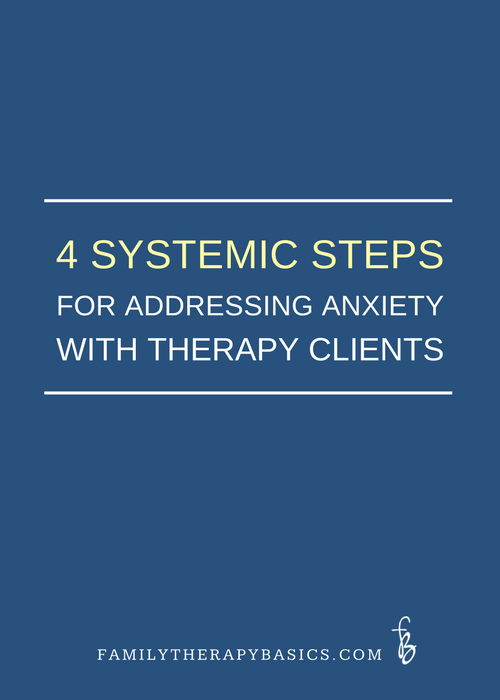Elliott Connie is a Solution Focused Brief Therapy (SFBT) practitioner, author, and speaker. He developed an approach to couples work that distills the essence of SFBT into guiding principles for working with couples.
As a therapist who loves working with couples, I am always interested in ways to enhance my couples therapy skills. For this reason, I invited Elliott to explain the reasons why SFBT is his choice for working with clients, as well as how it creates a contrasting experience for couples that have a history in therapy.
In this brief video, Elliott and I chat about what makes SFBT stand apart as a couples approach from other popular approaches, as well as three tips you can implement right now to utilize SFBT principles in sessions with couples.
Elliott Connie is a guest expert in The Refreshed Therapist Network. In his masterclass, he shares how he developed his approach, as well as its five guiding principles. Learn more about this community.
As you can see, Elliott is a natural encourager; he also quite literally wrote the book on using SFBT with couples.
Here's a summary of the video content:
Q: What makes Solution Focused Brief Therapy (SFBT) stand apart for couples work?
This approach isn’t interested in problem content; it's interested in the direction the couple would like to pursue (i.e. the desired outcome).
Questions related to discovering the desired outcome, include:
Where do you want your relationship to go?
What resources do you have to make that potential a reality?
What are the details related to that potential future?
Q: How do clients with past experience in therapy respond to the shift from problem-talk to "desired outcome" talk?
Favorably!
Clients notice the difference between typical therapeutic conversations and solution-focused therapeutic conversations. Clients often say: "I'm very happy to be talking to a therapist for whom I don't have to talk about the problem."
Elliott explains, "I’m not adverse to talking about the problem and people should never misunderstand Solution Focused for being problem-phobic. But, what I’m not doing is extracting the problem from the client as if it’s something they have to tell me."
Rather than asking questions about the problem, solution-focused practitioners seek and develop the desired outcome, with questions like:
What are your best hopes from this conversation?
What’s your desired outcome for your relationship?
What’s your preferred future for your relationship look like?
In spite of this hurt, what are the sorts of things you’d like to see begin to happen?
This type of talk gives clients a sense of control over problem content, rather than an experience of re-living shame and harm related to the problem while in the therapy office.
Q: What are 3 foundational things that therapists can do right now to implement this approach?
1. Change your opening question
Replace your current opening question with, "What are your best hopes from being here?" It invites couples to identify what they want (their desired outcome).
For more opening questions (from a variety of therapeutic approaches), see this post.
2. Once you have the desired outcome, develop this preferred future in detail.
A question Elliott gives as an example is, "If that desire became a reality, what would you notice?"
Continue asking questions about this preferred future. When you get stuck, ask more questions about the desired outcome.
3. Practice.
Become a question cafter! According to Elliott, your language skills have to be sharp! Practice with colleagues. Do exercises. Watch video examples of real sessions being done by experts in the field. Transcribe sessions, so that you can anaylze and learn from the content. In order to become a skilled therapist, and a skilled solution focused brief therapist in particular, you must hone and develop your linguistic skills.
More about Elliott Connie
I've added a summary of the information found in this post, including Elliott's three tips and his sample questions, to the free resource library. If you're not a subscriber, register for access.
Let's Chat
What one tip from Elliott will you be trying in your next couple session?













